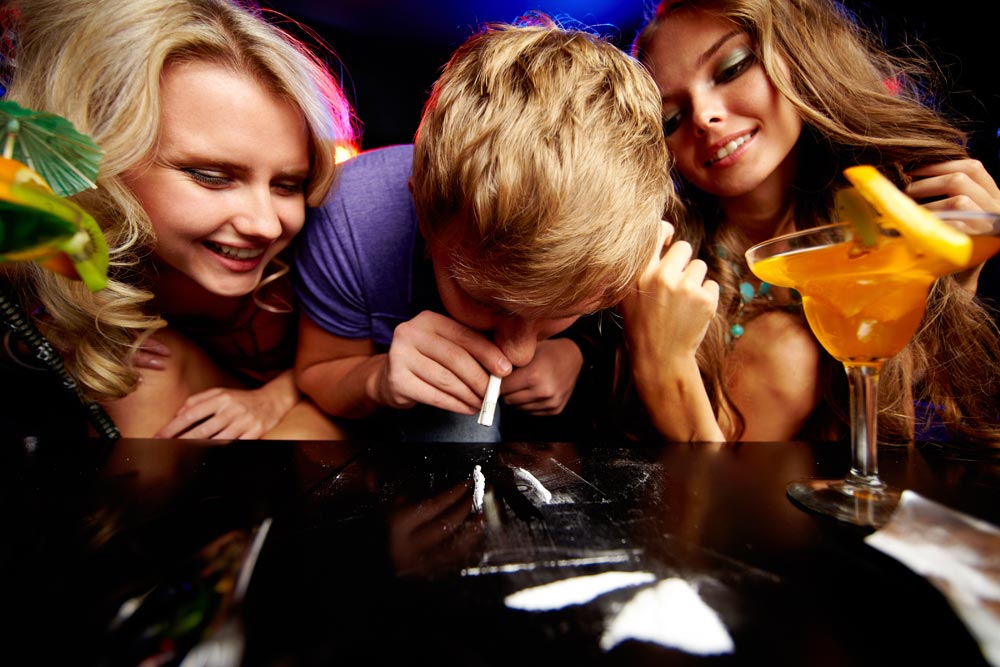
Coming to terms with the fact that your child or teenager may be experimenting with drugs or alcohol is very difficult for any parent or guardian to go through. Maybe you found out your child wasn’t just “experimenting” with alcohol or drugs, but they have developed an addiction or chemical dependency to the substance. While it may seem that this lifestyle has consumed every aspect of their lives, there is still hope. Many parents and teens face this problem, so please know that you are not alone. Addiction is a disease, and just like any other disease, addiction is a treatable one. Finding the best rehab facilities for teens is a great first step to take when your child’s health and safety is your primary concern.
Communication is a helpful tool for parents of teens who are experiencing a problem with substance abuse.
Let’s face it. It is highly unlikely that your son or daughter will come out and admit they have a problem with substance abuse and they need to go to rehab. At some point in their young lives, a conversation with your child about the dangers of alcohol and drug use should take place. As you watch your teens grow into young adulthood, you want them to have all the opportunities and experiences possible, to help them have a brighter future. When a teen starts abusing alcohol and drugs, those opportunities can become greatly diminished. The good news is that, according to the NIDA’s “Monitoring The Future Survey,” overall substance abuse amongst teens has significantly decreased over the last decade. Yet, there are still reasons to warrant major concern. A lot of teens and young adults will try drugs and alcohol.
For a younger person, this experimentation can quickly turn into a loss of self control, as the compulsion to “get high” overwhelmingly guides their behaviors. Teens and young adults are much more vulnerable to addiction than adults are. Since the human brain doesn’t fully develop until the age of 25, experimentation with illicit substances can lead to an addiction much faster than for a typical adult. Teens experience a much stronger emotional response in their thinking patterns. When a teen begins using drugs or alcohol before their brain is fully developed, a chemical dependency or addiction can develop much sooner. This condition will only get worse, the longer the problem goes without treatment. Early detection is crucial to helping your child leave behind the destructive lifestyle that is commonly associated with substance abuse.
So how do you talk to your teen about alcohol & drug abuse?
If you suspect that your teen may be using drugs or alcohol, the best time to talk with them is right now. Some of the recent changes you may have experienced in your household with your teenager could be the result of their problems with substance abuse.
These behaviors can become increasingly self-destructive for your child and the entire family. Sadly, when you try to confront them about their drug or alcohol use, it only seems to make things worse. Somewhere deep-down, you know these changes are not just the typical growing pains in adolescence.

When you approach your teen about their substance abuse, it is important to come from a foundation of understanding, love and support. If you make them feel like they’re in trouble, or that you are mad at them, they will likely try to continue hiding their substance abuse. The negative stigma surrounding addiction has prevented many people from seeking help on their own. This is especially true for teens. Nobody ever wants to admit that things have gotten out of control. Most teens will hide their substance abuse for as long as possible for fear of repercussions they face if they happen to “get caught”. In modern American culture, experimentation with drugs and alcohol seems like a rite of passage for many teenagers. Many kids are simply reacting to peer pressure and other social stimuli when they begin to experiment with legal and illegal drugs. Substance abuse and addiction should not be considered a moral failing of your child.
When a child or teen chooses to “get high,” it does not necessarily mean that they are bad kids. A lot of people who start using drugs often times are trying to self-medicate for feelings of low self-esteem, depression, social anxiety or family problems. Some kids are prone to experiment with drugs because they might be experiencing symptoms of an underlying, undiagnosed mental illness. When addiction is present along with another co-occurring mental health issue, the need for a dual diagnosis treatment strategy may be necessary to fully help your child recover.
If you have experienced any of the symptoms or signs that your child might be abusing drugs, finding a reputable drug rehabilitation facility for your teen should be the top priority. The best time for your teen to get help with their substance abuse is right now. Remember that addiction, when left untreated, will only get worse over time.

Teen drug abuse will lead to more problems later in life. Finding drug rehab facilities for your teen is their best hope.
If you suspect your teen is abusing drugs or alcohol, consider scheduling an intervention to help confront their substance abuse. This shouldn’t be viewed as an attack on them personally, but rather as an offer to get them the help they need. Most teens and young adults will not think they need the help of a professional alcohol and drug rehab facility. This is why it is important to approach the conversation about their drug use with an understanding, compassionate heart and mind. Hopefully, your conversation will go well and your teen will accept the help you are offering them. If this is the case, you should have already made a decision
on which rehab facility can best suit your child’s individual needs, so they can begin the recovery process as soon as possible. The drug and alcohol rehabilitation for teens at 10 Acre Ranch is well-known for laying the foundation to a successful recovery from addiction. We employ a ‘social model’ approach to addiction recovery, which helps structure and monitor the success of our treatment services. This helps our patients learn the skills to stay sober, long after they leave our rehab facility. Please call us to speak with a certified addiction counselor. We are available 24/7:






